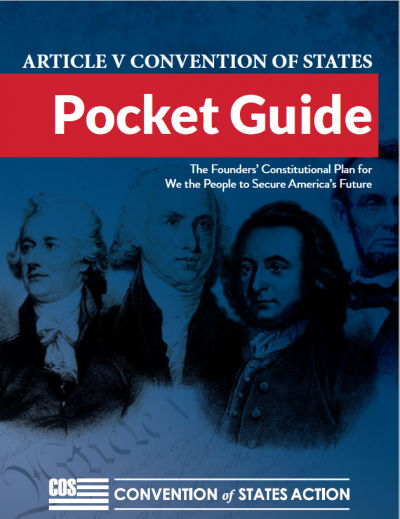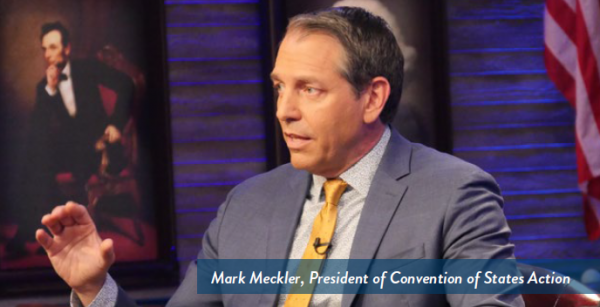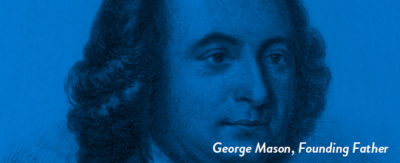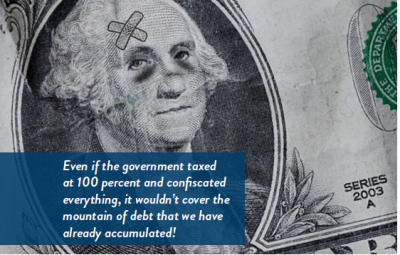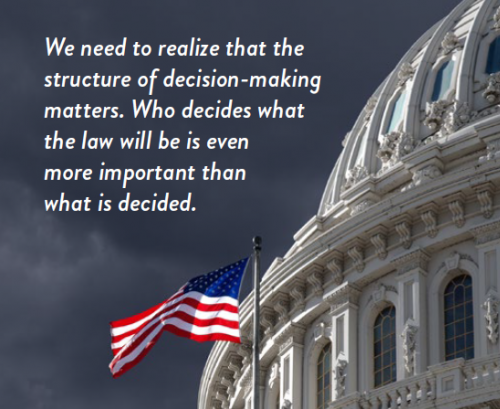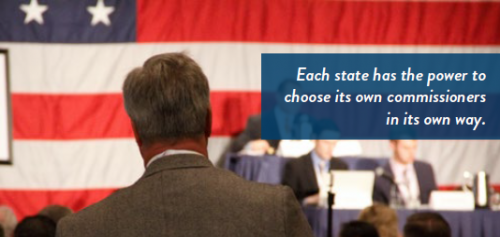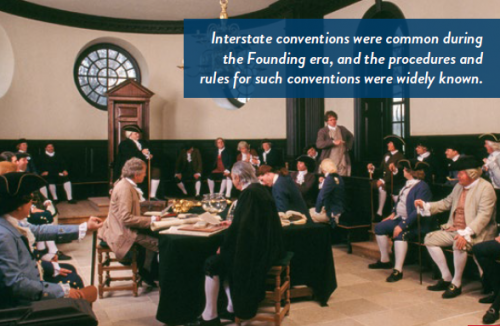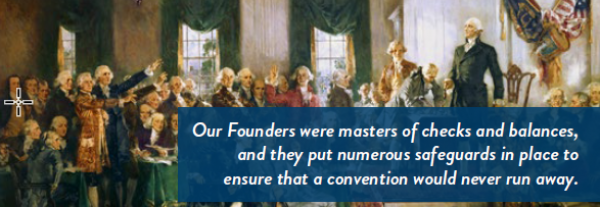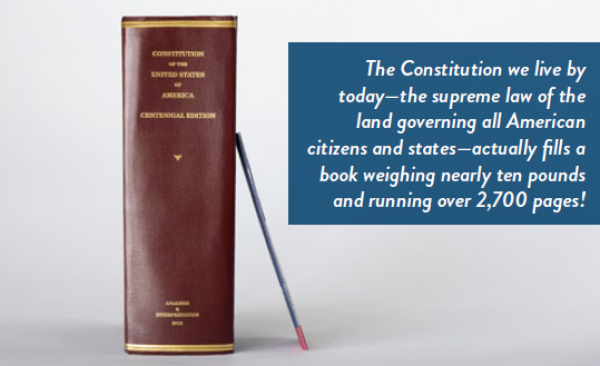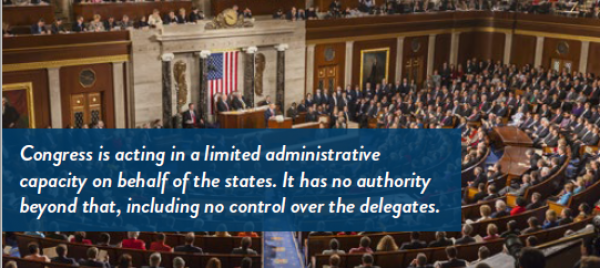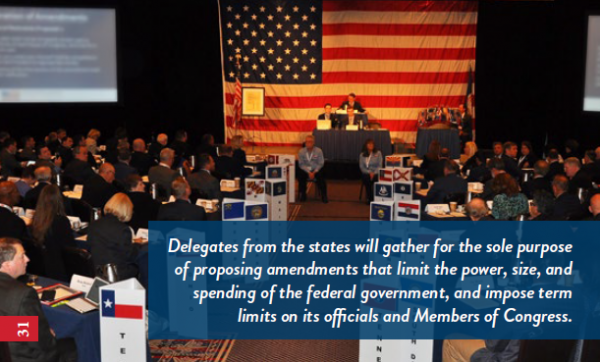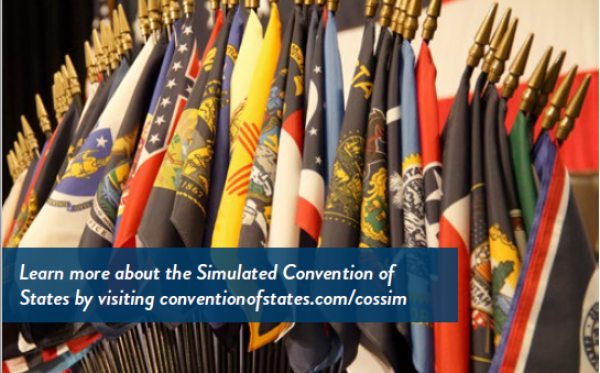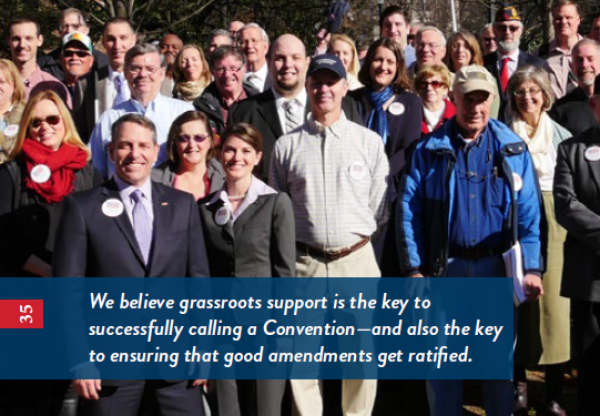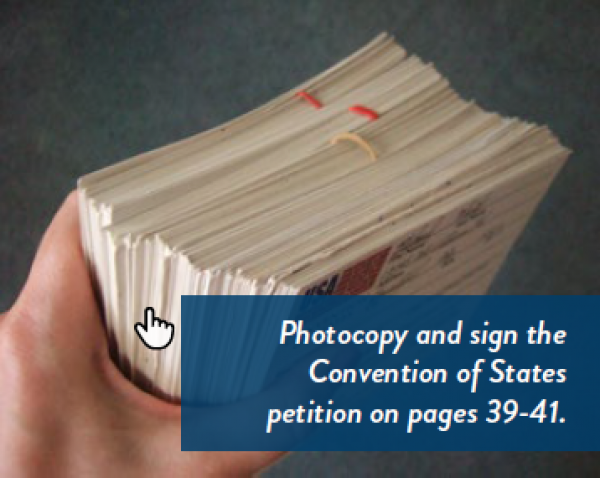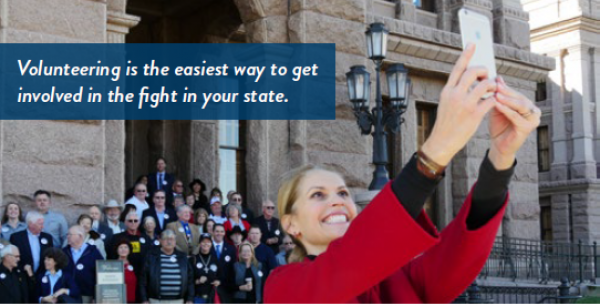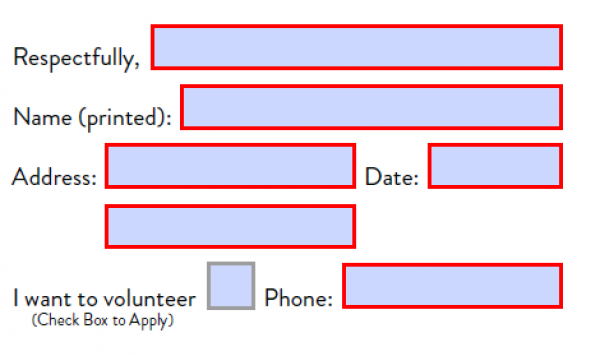Table of Contents
Article V Convention of States
CITIZEN’S POCKET GUIDE v2
The Founders’ Constitutional Emergency Plan for “We the People” to Save America from Federal Government Tyranny
2019 EDITION (v2)
Page numbers refer to the printed book. Links are provided.
TABLE OF CONTENTS
| 1. | Who Decides? A special message from COSA President Mark Meckler |
| 2. | Article V of the U.S. Constitution Find out what the Founders had to say about COS |
| 3. | The Problem Why Washington won’t let go of power |
| 4. | Support for a Convention of States Endorsements from notable leaders |
| 5. | OTHER NOTABLE SUPPORTERS Additional Endorsementsfrom notable leaders |
| 6. | Answers to Common Questions Find the information you need quickly |
| 7. | Overcoming Objections from Anti-Constitutionalists Cut through the misinformation - get the facts here |
| 8. | COS Model Application See the text of the Convention of States application |
| 9. | Amendments to Consider at a Convention of States Potential amendments to be debated at the convention |
| 10 | Convention of States Simulation What happened at the historic convention simulation? |
| 11. | About Convention of States Action (COSA) The organization and growing grassroots movement |
| 12. | Get Involved in Making History What you can do to get involved |
| 13. | Convention of States Petition Read and sign the petition to show your support |
1. Who Decides?
A special message from COSA President Mark Meckler
Who gets to decide what’s best for you and your family?
Should you have the power to decide?
Or should some out-of-touch bureaucrat in Washington, D.C., have the power to decide?
It’s time we shift the national conversation away from what government should do to “fix” our problems. It’s time we decide for ourselves whether the federal government should be involved at all in matters that affect us personally!
No matter the political issue of the day, the establishment in Washington loves to deliberate on what they will do.
They want the American people to ponder, “What will they decide?”
What will Congress decide about health care? Taxes? Education? Fiscal responsibility?
Should the government decide what to do about your health care, or should you and your doctor decide? Should D.C. bureaucrats decide what to do about education, or should you, your spouse, and your children’s teachers decide? Should nine Supreme Court Justices decide what constitutes a marriage, or should you, your community, and your state decide?
Instead of focusing on the better question: Who should decide?
If you’re anything like me, the answer is obvious. It’s the same answer our Founding Fathers gave when they drafted the Constitution: we the people should decide, not some far-off, disconnected government run by out-of-touch elites!
But the truth is: The Washington establishment will never, ever limit its own power. We just can’t rely on the politicians who got us in to this mess to get us out of it.
We need a solution that will let us go AROUND the Washington political establishment and rein in the out-of-control federal government permanently.
Here at Convention of States Action, we are implementing the solution, with the help of a vast army of grassroots citizen activists just like you.
This solution was hidden in plain sight in Article V of the Constitution, and it’s our best and last chance to take the power back from the out-of-control politicians in Washington and safeguard our liberty once and for all.
The booklet you hold in your hands contains our Founding Fathers’ antidote and cure for what ails our country.
Please take it, read it, and use it as you talk with your friends and family members about this constitutional solution to take back our great nation.
Yours in the fight,
Mark Meckler
President
2. Article V of the U.S.Constitution
Article V of the Constitution of the United States reads as follows:
“The Congress, whenever two thirds of both Houses shall deem it necessary, shall propose Amendments to this Constitution, or, on the Application of the Legislatures of two thirds of the several States, shall call a Convention for proposing Amendments, which, in either Case, shall be valid to all Intents and Purposes, as Part of this Constitution, when ratified by the Legislatures of three fourths of the several States, or by Conventions in three fourths thereof, as the one or the other Mode of Ratification may be proposed by the Congress; Provided that no Amendment which may be made prior to the Year One thousand eight hundred and eight shall in any Manner affect the first and fourth Clauses in the Ninth Section of the first Article; and that no State, without its Consent, shall be deprived of its equal Suffrage in the Senate.”
The Article V history from the 1787 Convention: “On September 15, as the Convention was reviewing the revisions made by the Committee of Style, George Mason expressed opposition to the provisions limiting the power to propose amendments to Congress. According to the Convention records, Mason thought that ‘no Amendment of the proper kind would ever be obtained by the people, if the Government should become oppressive, as he verily believed would be the case.’ In response, Gouverneur Morris and Elbridge Gerry made a motion to amend the article to reintroduce language requiring that a convention be called when two-thirds of the States applied for an amendment.” [30 Harvard Journal of Law and Public Policy 1005, 1007 (2007)]
Thank God that the Founders were wise enough to give us the second clause of Article V. Their decision was unanimous. The Framers had very little discussion or debate about this – and they debated everything – because they knew human nature. They had experienced the heavy hand of a tyrannical government. They forsaw a time in the future when such a mechanism would be necessary. Now is that time.
3. The Problem
WHY A CONVENTION OF STATES?
Washington, D.C., will never voluntarily relinquish meaningful power—no matter who is elected. The only rational conclusion is this: unless some political force outside of Washington, D.C., intervenes, the federal government will continue to bankrupt this nation, embezzle the legitimate authority of the states, and destroy the liberty of the people. Rather than securing the blessings of liberty for future generations, Washington, D.C., is on a path that will enslave our children and grandchildren to the debts of the past.
We see four major abuses against the people by the federal government. These abuses are not mere instances of bad policy. The federal government has been subjecting us to “soft tyranny” in which the government does not (yet) shatter all men’s wills but regularly “softens, bends, and guides” them. If we do nothing to halt these abuses, we run the risk of becoming nothing more than “a flock of timid and industrious animals, of which the government is the shepherd.” (Alexis de Tocqueville, Democracy in America, 1840)
3.1 - The Spending and Debt Crisis
America’s $22 trillion national debt is staggering, but it only tells a part of the story. Under standard accounting practices, the federal government actually owes well over $100 trillion more in vested Social Security benefits and other programs. The government cannot tax its way out of debt; even if it taxed at 100 percent and confiscated everything, it wouldn’t cover the mountain of debt that we have already accumulated!
3.2 - The Regulatory Crisis
The federal bureaucracy has placed a regulatory burden upon businesses that is complex, conflicted, and crushing. Little accountability exists when agencies— rather than Congress—enact the real substance of the law. Current research shows the annual cost of compliance at about $2 trillion, roughly equal to all income and corporate taxes combined! Worse, the growth-killing effects of regulation have shrunk economic growth by 25 percent, or $4 trillion per year.
3.3 - Congressional Attacks on State Sovereignty
For years, Congress has been using federal grants to keep the states under its control. Combining these grants with federal mandates (which are rarely fully funded), Congress has turned state legislatures into their regional agencies rather than respecting them as truly independent republican governments.
A radical social agenda and an invasion of the rights of the people accompany all of this. While significant efforts have been made to combat this social erosion, these trends defy some of the most important founding principles of federalism and self-governance.
3.4 - Federal Takeover of the Decision-Making Process
The Founders believed that the structures of a limited government would provide the greatest protection of liberty. Not only were there to be checks and balances between the branches of the federal government, power was to be delineated between the states and federal government, with the latter exercising only those “few and defined” powers specifically granted in the Constitution, while the states’ powers were left “broad and undefined.”
Collusion among decision-makers in Washington, D.C., has replaced these checks and balances. The federal judiciary supports Congress and the White House in their ever-escalating attack upon the jurisdiction of the 50 states.
We need to realize that the structure of decision-making matters. Who decides what the law shall be is even more important than what is decided. The protection of liberty requires a strict adherence to the principle that power of the federal government is limited and enumerated. Washington, D.C., does not believe this principle, as evidenced by an unbroken practice of expanding the boundaries of federal power.
The problems are big, but we have a solution as big as the problems. Article V gives us the tool the Founders intended we use to fix the mess in D.C.
Article V of the Constitution is our best chance – and our last chance – to take the power back from the out-of-control politicians and bureaucrats in Washington and safeguard our liberty once and for all.
And when the Convention of States convenes, Congress and the Washington bureaucracy will be POWERLESS to stop it!
4. Support for a Convention of States
“I have whole-heartedly endorsed the Convention of States Project. I serve on its Legal Board of Reference because they propose a solution as big as the problem.”
“I have wholeheartedly endorsed the Convention of States Project. I serve on its Legal Board of Reference because they propose a solution as big as the problem.”
“We have to hem in the power of Congress and, in many cases, the power of the Executive, before it is too late. Can you imagine the looks on the faces of politicians when they realize they are now legally barred from controlling your life and they can’t just live in those offices forever? Calling a Convention of States is the only way to get the job done. Sign the petition and get involved. It’s an important cause.”
“The leviathan of today’s federal government continues to grow unabated, pushing the people further away from our Founder’s vision of self-governance. The Convention of States Project is the only constitutional pathway for citizens to save our Republic by restoring it to her citizens. Article V of our Constitution underscores the duty of active citizenship and I am proud to stand with millions of volunteers in this effort.”
“Thank goodness the Founders had the wisdom to provide us with Article V of the Constitution, which gives us the right and power to hold an Amending Convention for the purpose of proposing amendments to restrain the scope and power of the federal government… Under the system of federalism, I support the efforts to gather a constitutional Convention of States consistent with Article V and honoring the 10th Amendment.”
“There’s a solution in our Constitution. We have the power to call a Convention of States to restrain the size, the power, the scope, and the jurisdiction of the federal government. If you’re serious about saving the nation, this is the best way to do it. Join the constitutional revolution with Convention of States Project.”
“There is not enough political will in Washington to fix the real problems facing the country. It’s time for the people to take back their country. The plan put forth by Convention of States is a great way to do just that by using the process the Founders gave us for reigning in the federal government.”
“I encourage every American to visit www.conventionofstates.com and add your name to a growing list of citizens calling for a return of federal power back to the states. Let us raise our collective voices and challenge the entrenched powers in Washington by finally, and for the first time, calling for a Convention of States.”
“Americans are sick and tired of the doubletalk coming out of Washington. So am I. After serving in the House, the Senate, and as President of the Heritage Foundation, I’ve finally realized the most important truth of our time: Washington, D.C., will never fix itself. Article V is the only solution.”
“I support an Article V Convention of the States. It is time for states to go on the offensive to limit the overreach of the federal government… I urge you to support all of the Constitution, and thus the efforts of the Convention of States to pass their extremely well-thought-out and strategic legislation in your home state and thus join us in a call to restore our constitutional republic.”
“Only a Convention of States will give us effective solutions to the abuse of power in Washington, D.C. It is our moral obligation to protect liberty for ourselves and our posterity.”
“The Founding Fathers gave us a foolproof way to rein in an over reaching federal government in Article V. If young conservatives want to take back our country, they will join me in supporting the Convention of States Project. A Convention of States is the only constitutional way to limit the power and jurisdiction of the federal government and anyone who wants to give power back to the people will support this growing movement. After all, as we always say at Turning Point, ‘Big Government Sucks,’ and it’s not going to shrink itself.”
5. OTHER NOTABLE SUPPORTERS
6. Answers to Common Questions
6.1 - Why Do We Need to Call a Convention of States?
Washington, D.C., is broken. The federal government is spending this country into the ground, seizing power from the states, and taking liberty from the people. It’s time for “We the People” to take a stand against tyranny with a coordinated, nationwide effort to curb the unrestrained and growing power of the federal government. The Founders gave us this emergency tool to fix Washington, D.C. We must use it before it is too late. Even when good people go to D.C. as elected officials, they lack the power to fix the structural problems now destroying our country. No change in personnel can fix a structural problem. Only a Convention of States has the power to repair this structural problem and halt the federal government from eroding the liberties of the sovereign citizens further.
6.2 - What is a Convention of States?
A Convention of States is a convention called by the state legislatures for the purpose of proposing amendments to the Constitution. They are given power to do this under Article V of the Constitution (see text, page 6). It is not a constitutional convention. It cannot throw out the Constitution because it derives its authority from the Constitution. A Convention of States can only propose amendments that fit within the topic of the applications adopted by the state legislatures. So, for example, a convention that is called to limit the power of the federal government could not propose an amendment to reduce our rights and expand federal power.
6.3 - How Do the State Legislatures Call a Convention of States?
Thirty-four state legislatures must pass a resolution in each house of their legislatures (called an “application”) calling for a Convention of States. The Convention of States application does not need to be signed by the Governor to be effective, so as soon as both houses of the state legislature pass the application that state becomes one of the required 34 states calling for a convention. In order for the applications to be aggregated (counted together towards the 34 state threshold), they must all cover the same topic or set of topics for a convention. The Convention of States model application is included on page 31.
6.4 - Can Congress Block a Convention of States?
No. As long as each of the 34 states applies for a convention that deals with the same issue (i.e., limiting the power and jurisdiction of the federal government), Congress must call the Convention. Congress’ ministerial duty is to name the place and the time for the convention. If it fails to exercise this power reasonably, the states themselves can and will override congressional inaction.
6.5 - How Do States Choose Their Delegates?
States are free to develop their own selection process for choosing their delegates – properly called “commissioners.” Historically, the most common method used was an election by a joint session of both houses of the state legislature. This is true federalism in action. Each state has the power to choose its own commissioners in its own way.
6.6 - What Happens at a Convention of States?
Each state’s delegation participates in discussing, drafting, and voting on amendment proposals germane to the topic(s) stated in the 34 applications that triggered the Convention. According to historical precedent (Local PDF) (Remote PDF), each state has one vote at the convention. Amendments sent to the states are merely suggestions, and have no authority until ratified by the states.
6.7 - How are Proposed Amendments Ratified?
Thirty-eight states must ratify any proposed amendments before they become part of the Constitution. Each proposed amendment is ratified separately by the states even if proposed as a package (like the Bill of Rights). Ratification may be done by state legislatures or by state ratification conventions, which represent the people more directly. Historically, ratification has been by state legislatures, with the exception of the Twenty-First Amendment, which was ratified by state conventions.
6.8 - How Do We Know How a Convention of States Will Work?
Interstate conventions were common during the Founding Era, and the procedures and rules for such conventions were widely accepted. Additionally, there have been many interstate conventions since the Founding Era, virtually all operating on similar rules. We can know how a Convention of States would operate by studying the historical record. The recent Convention of States Simulation (held in Williamsburg, VA, in September of 2016) proved that these well-established procedures would be followed by any Convention of States held today (see page 35 for a summary of that event).
6.9 - Is a Convention of States Safe?
Yes. The ratification process ensures no amendment that does not reflect the desires of the American people will be passed. (Read more detailed responses to specific objections to a Convention of States on page 25 of your booklet.)
7. Overcoming Objections
FROM THE OPPOSITION
Objection 1: What happens if a Convention of States becomes a “runaway convention” and takes away our hard-won liberties?
Answer: Despite a common myth promoted by some groups beginning in the 1960s, there is absolutely no precedent for a “runaway convention.” There have been at least 38 multi-state conventions in American history and not a single one has “run away.”
Our Founders were masters of checks and balances, and they put numerous safeguards in place to ensure that a Convention would never run away. The most important of these safeguards is the requirement that 38 states ratify any proposal coming out of the Convention before any change is made to the Constitution. It is politically impossible for any change to be made to our Constitution that does not enjoy the overwhelming support of the American people. As respected constitutional scholar Professor Robert Natelson has pointed out, “There are far more checks on a runaway convention than on a runaway Congress.”
Objection 2: Didn’t the original Constitutional Convention run away?
Answer: No, this is another myth that has been spread to justify judicial activism and other unconstitutional changes to our system of government. The entire claim that the Constitutional Convention ran away is based on the false idea that Congress called the Constitutional Convention for the sole purpose of amending the Articles of Confederation. But that’s not true. In fact, under the Articles of Confederation, Congress had no authority to call a convention. If you look at the historical records, it was actually Virginia that called the Constitutional Convention in October 1786. Virginia called the Convention for the purpose of “render[ing] the Federal Constitution [system of government] adequate to the Exigencies of the Union,” an instruction that certainly included proposing a new Constitution. Congress didn’t enter the picture until months later when, in February 1787, it passed a resolution recommending that the Convention only amend the Articles of Confederation. In the end, all but two of the states attending the Convention (New York and Massachusetts) ignored Congress’s non-binding recommendation and gave their delegates instructions broad enough to allow them to propose a new Constitution.
Objection 3: I like our Constitution the way it is—short, simple, and fairly easy to understand. Why should we change it?
Answer: While many Americans now own a “Pocket Constitution,” the truth is that the Constitution we live by today—the supreme law of the land governing all American citizens and states—actually fills a book weighing nearly ten pounds and running over 2,700 pages! That’s because for more than a century, a “runaway constitutional convention” has been going on in the Supreme Court. The results are printed by our federal government in The Constitution of the United States Annotated Edition. Everything from abortion to same-sex marriage to ObamaCare and more are now “the law of the land.” An Article V Convention, which the Framers provided, is the only way to rein in our activist judiciary, reduce the size of the federal government, and restore our Constitution back to its original pocket-size and its original intent.
Objection 4: The Constitution isn’t the problem. The problem is federal officials. How will amending the Constitution help?
Answer: Most of the problems our country is facing are the result of constitutional interpretations that capitalize on ambiguities in the wording of certain phrases (e.g., the General Welfare Clause being interpreted as unlimited power to spend). We can restore the federal government to its proper, limited place only by clarifying the original meaning of those phrases through constitutional amendments—effectively overturning the bad Supreme Court precedents that have eviscerated our federal system. Unfortunately, due to manipulation and expansion of federal government power by the Supreme Court, we the people must use a convention to put the federal government back into the constitutional box originally created by the Founders.
Objection 5: Article V says Congress “calls” the Convention. Doesn’t this mean Congress will control the Convention?
Answer: No, Congress’s role is limited to issuing the “call” which sets the date, time, and location of the meeting once it receives 34 applications for a Convention on the same topic. In legal terms, this is referred to as a “ministerial” role. In this role, Congress is acting in a limited administrative capacity on behalf of the states. It has no authority beyond that, including no control over the delegates.
Objection 6: At a time of extreme gerrymandering and in an environment of unlimited political spending, wouldn’t a Convention of States open up the Constitution and our system of government to being rewritten by special interest groups and the wealthy?
Answer: No. Over 400 applications for a Convention of States have been filed, but we have never had one because there have never been 34 applications seeking a Convention for the same purpose. This demonstrates that the purpose or scope specified in the applications does matter. States can instruct their respective delegates to entertain a more narrow scope than what is within the aggregated application, but they cannot broaden the topic beyond that identified in the 34 passed applications.
Objection 7: Why is the opposition to a Convention of States issuing dire warnings about its potential for national disaster?
Answer: Nearly all opposition comes from the hard left, as was revealed in April of 2017. Led by the George Sorosfunded Common Cause, a coalition of radically anticonstitutional activist groups united in their opposition to this constitutional solution. The nearly 250 signers include the AFL-CIO, Planned Parenthood, Greenpeace, La Raza, the NAACP, and Clinton-founded groups like MoveOn. org. These nearly 250 groups depend on a corrupt, runaway federal government to preserve their power, fill their coffers with taxpayer dollars, and advance their radical agendas. This kind of organized opposition means one thing: We are right above the target and they know it. These organizations share one goal: Keep the disastrous status quo of our federal government unchanged. A Convention of States is the only way to stop them.
Convention of States
8. MODEL APPLICATION
The COS application limits what can be proposed at a Convention of States.
The subject areas that can be considered at a Convention of States are strictly limited to those specified in the official applications submitted by all 34 (or more) states. Section 1 of the application for a Convention of States was carefully worded to specify such limits. It reads:
Section 1. The legislature of the State of hereby applies to Congress, under the provisions of Article V of the Constitution of the United States, for the calling of a Convention of the States limited to proposing amendments to the Constitution of the United States that impose fiscal restraints on the federal government, limit the power and jurisdiction of the federal government, and limit the terms of office for its officials and for Members of Congress.
Any amendment submitted by the Convention of States which goes beyond the scope plainly stated in Section 1 cannot be considered for ratification by the states.
9. Amendments
TO CONSIDER AT A CONVENTION OF STATES
At an Article V Convention of States, delegates will have the opportunity to debate and pass amendments that could:
• Require Members of Congress to live under the same laws they pass for the rest of us.
• Impose term limits on Members of Congress.
• Require a balanced federal budget.
• Impose limits on federal spending and/or taxation.
• Get the federal government out of our healthcare system.
• Get the federal government out of our education system.
• Stop unelected federal bureaucrats from imposing regulations.
• Set term limits for Supreme Court Justices.
• Set term limits for federal bureaucrats, ending the dominance of the “swamp.”
• Remove the authority of the federal government over state energy policy.
• Force the federal government to honor its commitment to return federal lands to the states.
At this Convention, delegates from the states will gather for the sole purpose of proposing amendments that limit the power, size, and spending of the federal government, and impose term limits on its officials and Members of Congress.
10. SIMULATION
“The events at Williamsburg will be remembered as a turning point in history. The spirit of liberty and self-governance has been reignited.”
– Michael Farris, Co-Founder, Convention of States Project
The first ever Convention of States Simulation convened in Colonial Williamsburg, Virginia, Sept. 21-23, 2016. Onehundred and thirty-seven commissioners representing every state in the nation gathered together to undertake this historic endeavor. The Convention operated flawlessly, according to a set of rules drafted by Article V scholar Prof. Rob Natelson and approved by the COS Caucus, the largest state legislator caucus in America.
The Convention passed amendment proposals on the following six ideas:
1. The public debt shall not be increased except upon a super majority vote in Congress.
2. Term limits on Members of Congress.
3. Limiting federal overreach by restoring the Commerce Clause to its original meaning.
4. Limiting the power of federal regulations by allowing for a congressional override.
5. Requiring a super majority of Congress to increase federal taxes and repealing the 16th Amendment.
6. Giving the states (by a 3/5ths vote) the power to abrogate any federal law, regulation, or executive order.
If you want to know how an actual Convention of States will operate, learn more about the simulated convention, and watch video of the proceedings, go to www.conventionofstates.com/cossim.
11. About
CONVENTION OF STATES
ACTION (COSA)
Convention of States Action is a 501©(4) nonprofit organization founded for the purpose of stopping the runaway power of the federal government. We believe Washington, D.C., is broken and will not fix itself. The federal government is spending this country into the ground, seizing power from the states, and taking liberty from the people.
We have a solution as big as the problem. COSA’s two-part plan is to urge and empower state legislators to call a Convention of States.
1. Article V requires that 34 states pass resolutions to call a Convention of States on the same subject before the meeting can be called. We are working with state legislators around the country to call a Convention for a specific subject: to impose fiscal restraints on the federal government, limit the power and jurisdiction of the federal government, and limit the terms of office for its officials and for Members of Congress.
2. We believe grassroots support is the key to successfully calling a Convention—and also the key to ensuring that good amendments get ratified. We are building a political operation in all 50 states, recruiting at least 100 citizens in every state legislative district in the nation.
Contact information
COS Action
5850 San Felipe, Suite 580A
Houston, TX 77057
540-441-7227
12. Get Involved
IN MAKING HISTORY
We always knew the statist ruling “elite” would one day attack, but our growing success has forced them to act faster than we anticipated. And you can be sure, those attacks are just beginning. Today they are coming from the radical left, but the assaults will expand to include every person and organization in Washington, D.C., with a vested interest in keeping power there. To ensure that we respond effectively, we’re focused on increasing our grassroots army to many millions of Americans. You can be a part of this historic grassroots movement by getting involved in four unique ways.
12.1. Sign & Send
First, photocopy or digitally sign the Convention of States petition on pages 39- 41 of this booklet and mail it to Convention of States Action, 5850 San Felipe, Suite 580A, Houston, TX 77057 and send your friends to www.conventionofstates.com to sign the petition. Right now, we have about 4 million supporters, but we’re looking to more than double our citizen activist army by the year’s end. If every supporter sends the petition to five of their friends, we’ll hit that goal in no time.
12.2. Volunteer
Volunteering is the easiest way to get involved in the fight in your state. As a volunteer, your primary tasks will be contacting your state legislators and asking that they support the Convention of States resolution, spreading the word about Article V to your friends and family, and attending legislative meetings at your state capitol. You can commit as much or as little time as your schedule allows — we’re just excited to welcome you aboard! For more information, visit: www.conventionofstates.com/take_action.
Our volunteer teams are another great way to become involved. The Social Media Warriors spread the word online and the State Follow-Up Team welcomes new volunteers.
For more information, visit: www.conventionofstates.com/take_action#volunteers.
12.3. Be a Leader
We have leadership positions to fit any skill set. Visit:
www.conventionofstates.com/take_action#leaders and apply to be a:
• State Director
• District Captain
• Coalitions Director (e.g., Veterans, Young Americans)
• State Videographer
• State Communications Coordinator
• Legislative Liaison
• State Media Liaison
• State Information Analyst
• Coalitions Director
• State Grassroots Coordinator
12.4. Spread the Word
Share this booklet with a friend, family member, or an elected official. Visit us online for more information at:
instagram.com/conventionofstates
(540) 441-7227 (to request a speaker)
Convention of States
13.1 ONLINE PETITION
To sign the petition online, click on the button below and fill out the form. Your petition will be sent directly to your state legislators, encouraging them to support COS.
Convention of States
13.2 PAPER PETITION
Make photocopies of this form for you and others to sign.
Mail signed copies to Convention of States Action, 5850 San Felipe, Suite 580A, Houston, TX 77057.
Almost everyone knows that our federal government is on a dangerous course. The unsustainable debt combined with crushing regulations on states and businesses is a recipe for disaster.
What is less known is that the Founders gave state legislatures the power to act as a final check on abuses of power by Washington, DC. Article V of the U.S. Constitution authorizes the state legislatures to call a Convention for proposing needed amendments to the Constitution. This process does not require the consent of the federal government in Washington, DC. I support the Convention of States Project; a national effort to call a Convention under Article V of the United States Constitution, restricted to proposing amendments that will impose fiscal restraints on the federal government, limit its power and jurisdiction, and impose term limits on its officials and members of Congress.
I want our state to be one of the necessary 34 states to pass a resolution calling for this kind of Article V Convention. You can find a copy of the model resolution and the Article V Pocket Guide (which explains the process and answers many questions) here:
I ask that you support the Convention of States Project and consider becoming a co-sponsor of the resolution. Please respond to my request by informing the national COS team of your position, or sending them any questions you may have: info@conventionofstates.com or (540) 441-7227.
Thank you so much for your service to the people of our district.
Respectfully,
Name (printed):
Address: Date:
I want to volunteer Phone:
(Check Box to Apply)

